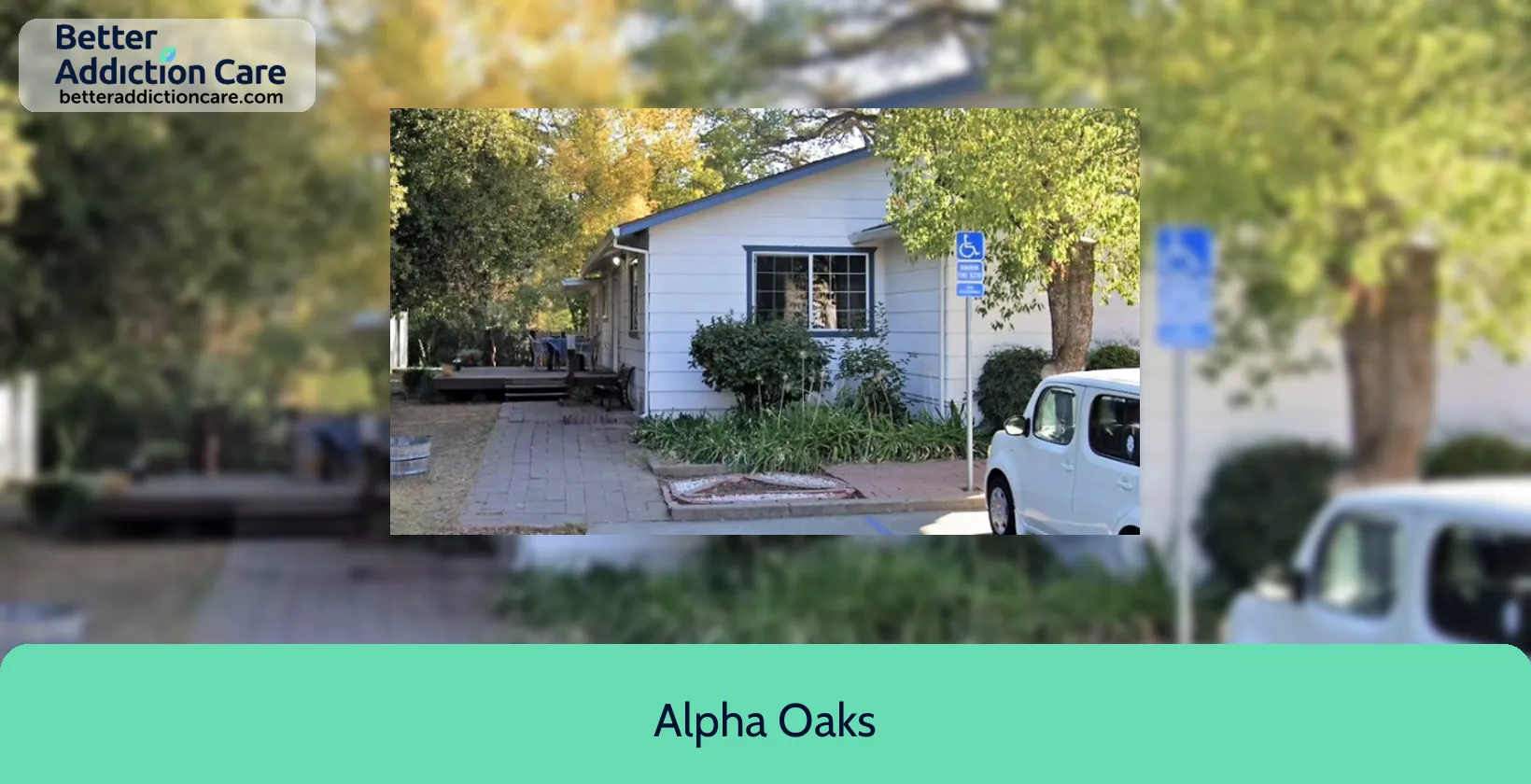Alpha Oaks
Overview
Located in the heart of Carmichael, California, Alpha Oaks is a non-profit residential treatment center that supports women who are battling addiction. Alpha Oaks, founded in 1977 by women who had overcome their own alcoholism, provides a special setting where women support other women in overcoming their addictions and pursuing recovery. The underlying tenet of the institution is the conviction that shared experiences, empathy, and mutual understanding are the best environments for women to recover in.
The Alpha Oaks treatment program places a major emphasis on creating daily routines that support sobriety. Together, they strive for better lives and share a homelike atmosphere that helps people build supportive and cooperative relationships. Using a community-driven approach, each woman may create a basis for long-term rehabilitation by learning useful skills that she can use in her daily life. At Alpha Oaks, the "social model" of therapy emphasizes on developing routines and social skills that promote fulfilling, drug-free lifestyles.
Alpha Oaks residents engage in a range of therapeutic activities, such as individual treatment, educational programs, group counseling, and relapse prevention sessions. In order to ensure that the care each resident receives is customized to their journey, personalized treatment plans are created to fit their individual requirements. Furthermore, both while they are residing at the facility and after they return to their regular life, individuals are urged to participate in the larger recovery community by going to AA and NA meetings.
Apart from its therapeutic approach, Alpha Oaks offers an all-encompassing support structure including wholesome meals, laundry facilities, and a well-organized timetable that strikes a balance between therapeutic pursuits and scheduled free time on the weekends. The goal of this all-encompassing strategy is to support each resident's mental, physical, and social wellbeing while also fostering a feeling of belonging and community that strengthens their will to become well.
In the Sacramento County communities of Carmichael and Fair Oaks, Alpha Oaks has two residential treatment centers that accept women with a range of histories and degrees of addiction severity. The facility's unwavering adherence to the 12-Step concept, which is essential to both the treatment process and post-residence care, demonstrates its commitment to assisting women in creating satisfying lives free from dependence.
Through the organization's methodology, hundreds of women have been helped to become self-sufficient and valuable members of their communities by being led through serious life crises. Alpha Oaks, which focuses on giving women the tools they need to take back control of their life, continues to be a ray of light for anybody trying to beat addiction.
The Substance Abuse and Mental Health Services Administration (SAMHSA) has accredited Alpha Oaks, demonstrating its commitment to providing high-quality treatment. Additionally, the institution is licensed by the state of California, demonstrating its dedication to providing high-quality care that complies with legal criteria.
Alpha Oaks at a Glance
Payment Options
- Private health insurance
- Cash or self-payment
- State-financed health insurance plan other than Medicaid
- Self-pay options
- Financial aid
Assessments
- Comprehensive mental health assessment
- Comprehensive substance use assessment
Age Groups
- Adults
- Young adults
Operation
- Treatment duration
- Private non-profit organization
Highlights About Alpha Oaks
6.77/10
With an overall rating of 6.77/10, this facility has following balanced range of services. Alcohol Rehabilitation: 8.00/10, Drug Rehab and Detox: 6.00/10, Insurance and Payments: 6.00/10, Treatment Options: 7.09/10.-
Alcohol Rehabilitation 8.00
-
Treatment Options 7.09
-
Drug Rehab and Detox 6.00
-
Insurance and Payments 6.00
Accreditations
State department of health:

Government agencies issue State Licenses, which grant rehabilitation organizations permission to conduct their operations lawfully within specific geographic regions. Licenses needed to operate are typically determined by the type of rehabilitation program offered by the facility and its physical location.
Treatment At Alpha Oaks
Treatment Conditions
- Mental health treatment
- Alcoholism
- Opioid Addiction
- Substance use treatment
- Co-occurring Disorders
Care Levels
- Detoxification
- Aftercare
- Halfway house
- Hospital inpatient treatment
- Hospital inpatient/24-hour hospital inpatient
Treatment Modalities
- 12-step facilitation
- Individual psychotherapy
- Group counseling
- Life Skills
- Cognitive Behavioral Therapy
Ancillary Services
Special Programs
- Clients who have experienced trauma

Additional Locations
Get Help Now
Common Questions About Alpha Oaks
Contact Information
Other Facilities in Carmichael

6.82

6.68
DISCLAIMER: The facility name, logo and brand are the property and registered trademarks of Cornerstone, and are being used for identification and informational purposes only. Use of these names, logos and brands shall not imply endorsement. BetterAddictionCare.com is not affiliated with or sponsored by Cornerstone.


